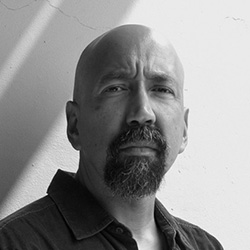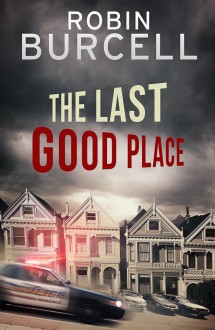
I’ve always been reluctant to write about my own real life experiences. The reasons I give are, a) I don’t think those experiences are all that fascinating; and b) I don’t think they’re anybody’s business but my own. That’s a rather selfish attitude, I admit, but then, I’ve never been a subscriber to the idea that nothing great ever comes of art that doesn’t require one to open up a vein.
This isn’t to say I don’t believe a writer’s best work has to involve some measure of self-reflection. I do. I just don’t think a reader needs to know the intimate details of a writer’s life in order to fully connect with his work. If a writer’s done his job right, a reader should get the benefit of his life experiences without the writer having to spell those experiences out. Whether I choose to write about specific events in my life or not, the world view those events have left me with can be found in everything I write, and I wouldn’t have it any other way. Narcissistic exhibitionism is the point of all this writing-for-publication business, after all.
And yet, for all our desire to share our unique world perspective with perfect strangers, to reveal our true selves by way of literary expression, there is a limit to what most of us will lay bare. We set these limits for all kinds of reasons, both personal and commercial:
This is humiliating.
This won’t sell in Middle America.
My agent will want me to cut this.
My (brother/father/cousin Bill) will know this is about him and will never forgive me for writing about it.
Whatever our reasons for the omission, we all withhold something from the reader, and sometimes this is to the benefit of our writing and sometimes it’s to the detriment of it. I think what determines which of the two it is is how central what we choose to omit is to the person we really are. Trying to write around ideas and principles we hold dear is like trying to paint around the proverbial elephant in the room; it can create an artificiality the reader can’t help but sense.
I don’t know if I’ve been guilty of such artificiality myself, but I have come to realize that there’s a part of me I’ve never allowed to color my writing in any substantial way, and not simply because the opportunity to do so hasn’t presented itself. No, this is something I’ve deliberately shied away from, something I’ve convinced myself has no proper place in the kinds of stories I write. In my personal life, I make no bones about it, but in my professional one, I’ve treated it like a small physical defect best turned away from the light.
Here it is: I’m an unrepentant Catholic.
Whoa. Where’d everybody go?
Well, anyway, for the benefit of those still here, the word “unrepentant” in the confession above can best be defined as follows: “Content to remain a card-carrying member while reserving the right to be guided by conscience and not the Vatican.”
Whether that makes me a good Catholic or no Catholic at all is a discussion for another day — and another blog. My personal belief system is only germane to this post as an example of something that defines me as an individual, yet has never been given much of a voice in my writing. Religion is such a divisive subject, I’ve made it a non-issue in my work so as to avoid turning anybody off.
But what kind of bullshit is that? I’ve gone on record many times decrying self-censorship where profanity is concerned; I think writers who try to pass “friggin’” off as a perfectly acceptable synonym for “motherfucker,” just to keep all those book-buying cozy readers from fleeing the room screaming, are calculating, disingenuous weenies. And yet, here I’ve been, dodging matters of faith with equal intent, and with the same commercial considerations in mind.
Well, not anymore.
Writers are always trying to find their “truth,” the specific story or stories they alone were put on this earth to tell. And it’s finally occurred to me that, if I ever intend to find my truth, I’m going to have to empty the larder and throw everything I’ve got into the pot. Writing with restraint is no longer going to cut it.
Anybody expecting me to suddenly become the Tim Tebow of noir is going to be sorely disappointed, however. I have no interest in writing Sunday sermons disguised as crime fiction, nor in saving anybody’s soul. I don’t like to read religious screeds, no matter how subliminal, and I sure as hell don’t want to write them. But neither do I intend to go on treating my core beliefs like a dirty secret, while writing to be loved by everyone and despised by no one. The time has come for me to find out what kind of work I can produce when I’m no longer worrying about revealing too much of the man behind the curtain.
They say the truth will set you free.
We’ll see.
Questions for the Class: Does your writing reflect everything and every one you are? Or are there things about yourself you choose to keep separate from your work? Readers, what writers, if any, have you read who handle matters of faith with the right balance of heft and subtlety?


